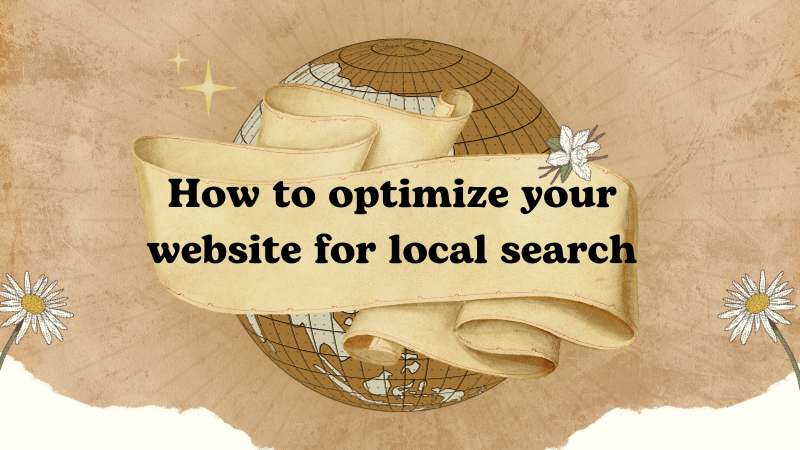
How to Optimize Your Website for Local Search
In the digital age, local businesses need to harness the power of the internet to attract nearby customers. If you want to reach potential clients in your area, optimizing your website for local search is crucial. In this comprehensive guide, we'll show you how to effectively optimize your website for local search and improve your online visibility to attract more local customers.
Why Local Search Optimization Matters
Local search optimization is the process of fine-tuning your website to appear in local search results when potential customers are looking for products or services in their geographic area. Here's why it matters:
Reach Your Target Audience: Local search optimization helps you connect with people in your area who are actively searching for what you offer.
Increased Foot Traffic: By optimizing for local search, you can drive more foot traffic to your physical location if you have one, helping you convert online interest into in-person visits.
Competitive Advantage: Many businesses neglect local SEO. By optimizing your website for local search, you can gain a competitive edge and stand out in local search results.
Techniques to Optimize Your Website for Local Search
Now, let's dive into the techniques that will help you make the most of local search optimization:
Keyword Research: Identify local keywords that your potential customers might use to find businesses like yours. Tools like Google Keyword Planner and Ubersuggest can help you discover relevant keywords.
Create Location-Specific Content: Develop content that reflects your local presence. This can include blog posts, landing pages, or even customer testimonials that mention your city or region.
On-Page Optimization: Ensure your website's on-page elements, such as title tags, meta descriptions, header tags, and image alt text, incorporate your target local keywords.
Google My Business: Claim and optimize your Google My Business listing. This is crucial for appearing in Google's local map pack and local search results.
Local Citations: List your business on local directories and review sites like Yelp, TripAdvisor, and Yellow Pages. Consistency in your business name, address, and phone number (NAP) information is essential.
Customer Reviews: Encourage satisfied customers to leave reviews on your Google My Business listing and other review platforms. Positive reviews can improve your local search rankings.
Mobile Optimization: Ensure your website is mobile-friendly, as many local searches happen on mobile devices.
Local Schema Markup: Implement local schema markup on your website to provide search engines with specific details about your business, such as your address, phone number, and operating hours.
Local Backlinks: Build local backlinks by reaching out to local websites, news outlets, or community organizations. These backlinks can boost your local authority.
Monitor Your Progress: Regularly track your local search performance using tools like Google Analytics and Google Search Console. Adjust your strategy as needed to achieve better results.
In conclusion, optimizing your website for local search is a fundamental aspect of modern marketing for local businesses. By focusing on local keywords, creating location-specific content, and utilizing local SEO techniques, you can improve your online presence and attract more local customers. Remember that local search optimization is an ongoing process, and staying up-to-date with best practices is essential to maintain your success in the local market.
Start implementing these strategies today, and watch as your website climbs the local search rankings, driving more local customers to your business.



